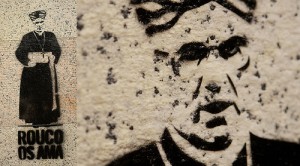The Spanish Catholic Church’s immediate challenges are substantial and clear for all to see: reversing the steady exodus of regular churchgoers; appealing to immigrants, an enormous potential congregation; and shedding an anachronistic image that alienates young Spaniards.

So while the Spanish Episcopal Conference’s decision to give Cardinal Antonio María Rouco Varela a record-breaking fourth term as its president came as little surprise to Church watchers, it is perplexing for those who are aware of the above challenges. Rouco, the archbishop of Madrid, has earned a reputation as a conservative hardliner, taking on the Socialist government on issues such as abortion and gay marriage.
He has done little to play down this image in recent days, as he warned against the evils of internet. Online social networks, he said, foment “a virtual, empty way of life,” adding that young people today “find themselves exposed to the disorienting influence of relativism.” He also cautioned against the dangers of the “anything goes” values that he sees around him.
Following his triumphant March 1 election result, Rouco also rejected claims that the Church has a problem in the form of falling numbers of churchgoers. Less than 20 percent of Spaniards currently go to mass and the number of believers is on a steady decline, according to figures from the CIS statistics institute. Rouco dismissed these kinds of studies, asserting that “sociology is not infallible” and he even added: “I don’t have the feeling that the Church, at this time, is not credible or held in esteem – on the contrary.”
Critics could also point to the cardinal’s age –he is 74– as further reason for the Spanish Church to look elsewhere for leadership. Later this year, the Pope will almost certainly be required to issue a special waiver allowing Rouco to remain in his post beyond the retirement age of 75.
And yet, ironically, “youth” is at the heart of Rouco’s plans for the coming months. In August, his home city of Madrid will host the World Youth Day celebrations, which will also see Benedict XVI visit Spain for the second time in less than a year. For those who support Rouco, this will cement his legacy.
But not everyone in the Church’s hierarchy is a fan. One member of the clergy who followed the Episcopal Conference elections closely and who knows Rouco, told Iberosphere that there is a significant faction that wants to see a change of guard and change of approach at the top of the Church. Embracing the internet might be more constructive than warning of its evils, for example, in attracting new believers.
The final vote reflects how the cardinal does not enjoy unanimous support among his colleagues: he received 39 out of a total 75 votes, with the moderate Ricardo Blázquez getting 28.
“He does not inspire any enthusiasm in the Vatican and he makes a lot of bishops, who think the time has come for a change, uncomfortable,” was how La Vanguardia newspaper reacted to the news.
In the short term, Spain’s Church can look forward to being the centre of the Catholic world for a few days next summer. But beyond then, it might have to take a long, hard look at the real world.
Leave a Reply
You must be logged in to post a comment.